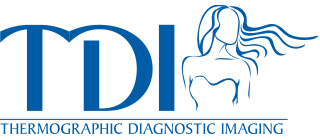Topic: Light Bulb Moments and the Art of Deductive Medical Reasoning
Date Aired: Wednesday, 25 October 2017
Presenter: Philip Getson, DO
Webinar Overview:
When self-proclaimed mystery buff and “Sherlockian”, Philip Getson, DO, was stumped by a medical case in the mid 1980’s, he began a journey to seek answers that would eventually lead him to becoming an expert on Reflex Sympathetic Dystrophy/Complex Regional Pain Syndrome. In this webinar Dr. Getson will be discussing the diagnosis and treatment of this debilitating and often misdiagnosed disorder.
Reflex Sympathetic Dystrophy or, as it is now known, Complex Regional Pain Syndrome is an insidious disease of unknown etiology. Primarily it is a neurological disorder and as such affects not only the nerve endings as we know them but also internal organs and the musculoskeletal system and its ramifications are far reaching.
The primary hallmark of this disorder is pain and in instances where this follows a traumatic event, the pain is out of proportion to said event. There are many other symptoms such as but not limited to swelling, color change, temperature change, hair growth and nail growth changes, and motor movement dysfunction. The pain is more often than not described as burning but frequently can be described as deep bone pain, sharp pain, dull pain, and many other adjectives have been used to describe this primary symptom.
About the Presenter:

Dr. Getson’s medical philosophy is derived from this simple premise. It is far easier to come to a diagnosis in most cases by taking a comprehensive history and in cases of injury by re-enacting the traumatic event. “It never ceases to amaze me what people will remember if you take them step by step through the circumstances that led them to present in your office.”
He believes the mystery genre and Holmes in particular has made him a better diagnostician. Today with computers and the internet, students seem to rely less and less on intuitive thinking and more on electronic information access.
For Dr. Getson there is no greater sense of accomplishment than to see the look on a patient’s face when you can provide an answer to their medical problems. “Whatever the diagnosis may be it still affords for the opportunity to intervene which, I have found, is far better than “not knowing.”
He has always practiced using a combination of logic, deductive reasoning and intuition and will continue to do so.

